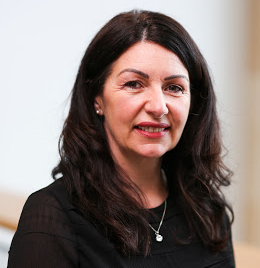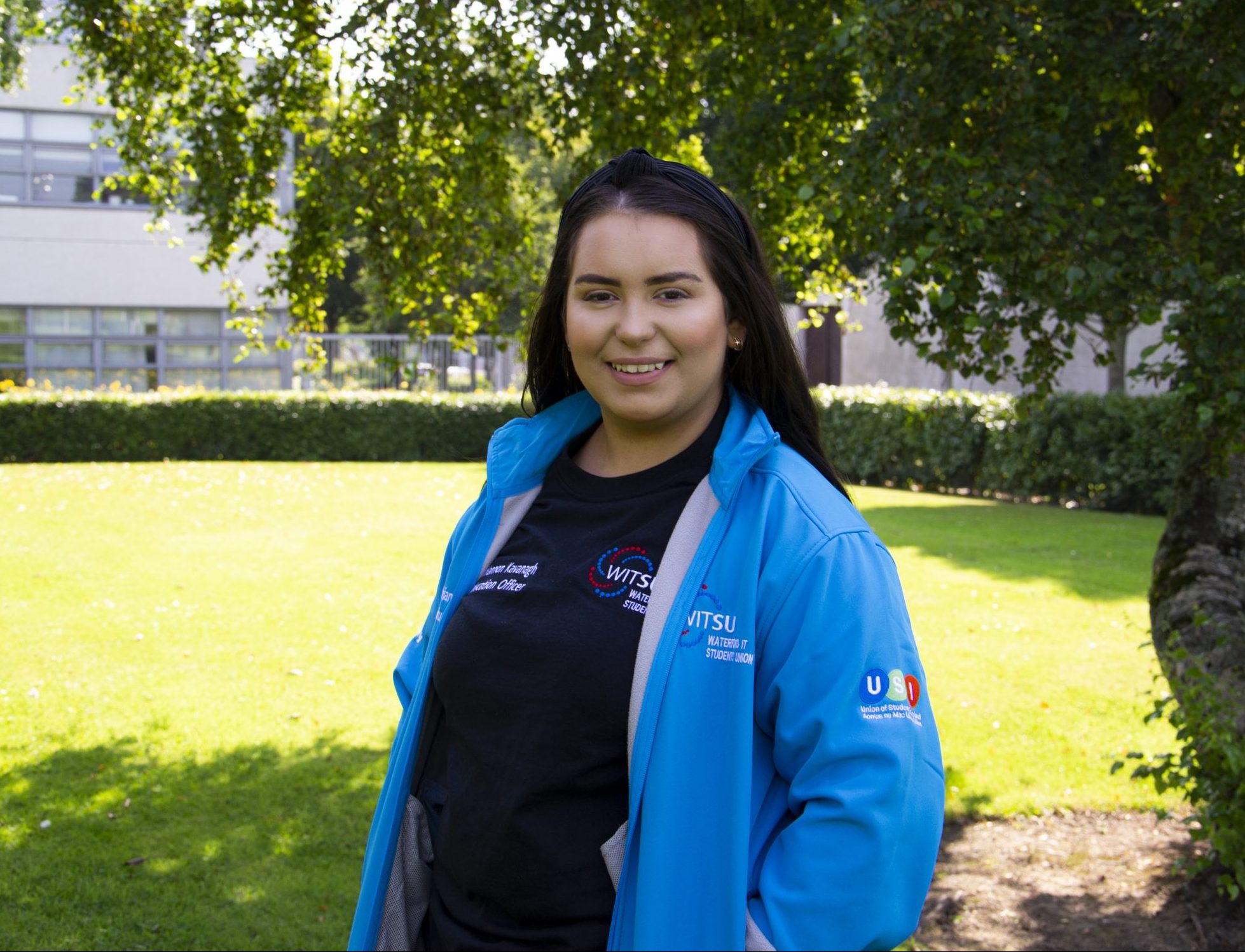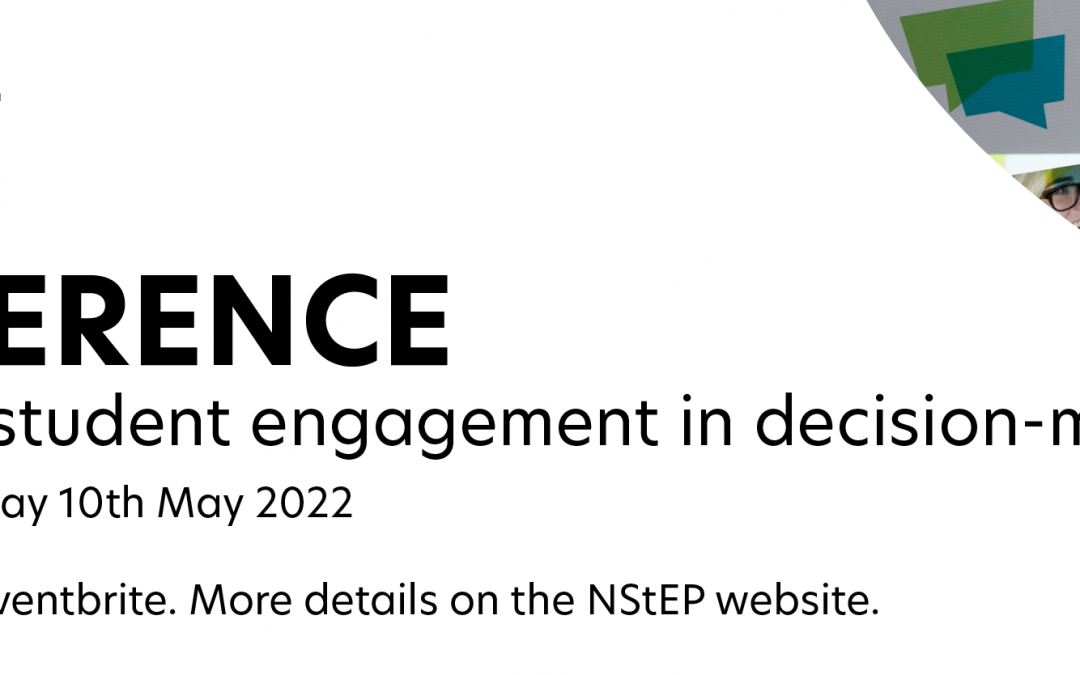To mark the launch of a new chapter in the story of the National Student Engagement Programme (NStEP) and efforts to foster student-staff partnership in Irish higher education, we’re hosting an online conference on 10th May from 10am until 2pm. We hope that students and staff from across the sector will join us for this exciting event!
The NStEP partners – Quality & Qualifications Ireland, Higher Education Authority, and the Union of Students in Ireland – are getting ready to launch the new NStEP Strategy for 2022 and beyond at the conference. A line-up of student and staff speakers from across the higher education sector will provide attendees with a range of perspectives and projects aimed at enhancing student engagement in decision-making. We’ll also be joined by a great line-up of keynote speakers in our afternoon sessions. To find out more about our keynotes, scroll down.
Registration is now open on Eventbrite. Click the button below.
Speaker Information
Dr Roisín Curran – Centre for Higher Education Research and Practice (CHERP), Ulster University

Roisín’s theme – Wider conceptions of student engagement: the power and potential of staff student partnerships to influence and promote engagement
Roisín started her teaching career in Further Education in 1997 having previously worked in the financial services industry in London for nine years. Since 2004 she has worked as a staff and educational developer at Ulster University and is currently Interim Head of the Centre for Higher Education Research and Practice (CHERP). She is also the Course Director of the Master in Education (MEd) course, a professional development programme for staff.
Roisín has also led a cross-disciplinary project team at Ulster as part of a national ‘What works? Student Retention and Success Change Programme (2013-16)’ involving 13 institutions across the UK. This collaborative action research has further extended sector knowledge of what works in relation to improving student engagement, retention, and success.
Roisín has a particular interest in student engagement and has published papers on the impact of a ‘students as partners’ approach on staff-student engagement. She has co-developed a new Integrated Curriculum Design Framework at Ulster that scaffolds the student journey and that which promotes: a relational-based partnership approach, active learning, peer support, and ways of thinking and practising the discipline. Roisín is a Principal Fellow of the Higher Education Academy.
Rhiannon Kavanagh – Student Associate, National Student Engagement Programme (NStEP)

Rhiannon’s theme – Support and Enhancement of Student Partnership Both Locally and Nationally in Irish Higher Education
Rhiannon Kavanagh is a recent graduate from Waterford Institute of Technology. She went on to serve two terms as Vice President for Education with WIT Student’s Union, participating in many Institute boards and committees as well as some enhancement initiatives and TU Merger conversations with IT Carlow. Rhiannon then went on to spend six months working as a Student Intern with the National Forum for the Enhancement of Teaching and Learning, working predominantly in the area of Student Success and with the National Forum Student Assembly. She is now completing the final six months of her internship working in partnership with the National Student Engagement Programme (NStEP), continuing to co-ordinate the Student Assembly as well as supporting the NStEP team on some of their ongoing projects and initiatives.
Emer Neville – President, Irish Second-Level Students’ Union (ISSU)

Emer’s theme – The impact of the Covid-19 pandemic on Student Engagement
Emer Neville is an 18 year old gap-year student from Co.Tipperary and is Uachtarán/President of the Irish Second-Level Students’ Union (ISSU). The ISSU is the national representative body for second-level students in the Republic of Ireland. It is led by students, for students and works to represent, uplift and defend student voice by providing support to individual student councils, engaging with education stakeholders and developing policies on issues that affect second-level students. The ISSU aims to provide a collective voice for second-level students while working to continually develop a transparent, fair and modern education system.
Dr Philip Carey – Teaching and Learning Academy, Liverpool John Moore’s University

Phil’s theme – Course representation: Is it fit for purpose and whose purpose is it fit for?
A system of course representation dates back to the birth of the very first universities. Today, it is a cornerstone of student engagement in higher education, with representation seen as a key means to establishing the student voice in elements of institutional governance. Yet, despite its long history and seeming omnipresence in course-related decision-making, the processes and expectations associated with representation have received surprisingly little scrutiny. As a result, practitioners often fall back on custom and practice to inform how they support course representatives. This presentation will reflect on how the system can be adapted to enhance outcomes for both students and their universities. Based on research evidence, theoretical insight and personal reflection, it will challenge delegates to consider their assumptions about and expectations of the course representative system. Central to this is the way that the management of the system can supress or enhance an authentic student voice.
Phil Carey is the Dean of the Teaching & Learning Academy in Liverpool John Moores University. The Academy’s role is to support the enhancement of academic practice across the university. Phil’s research interests focus around student engagement. These formed the basis of his appointment as a Reader in Student Engagement in 2016. Phil is also a UK National Teaching Fellow.

